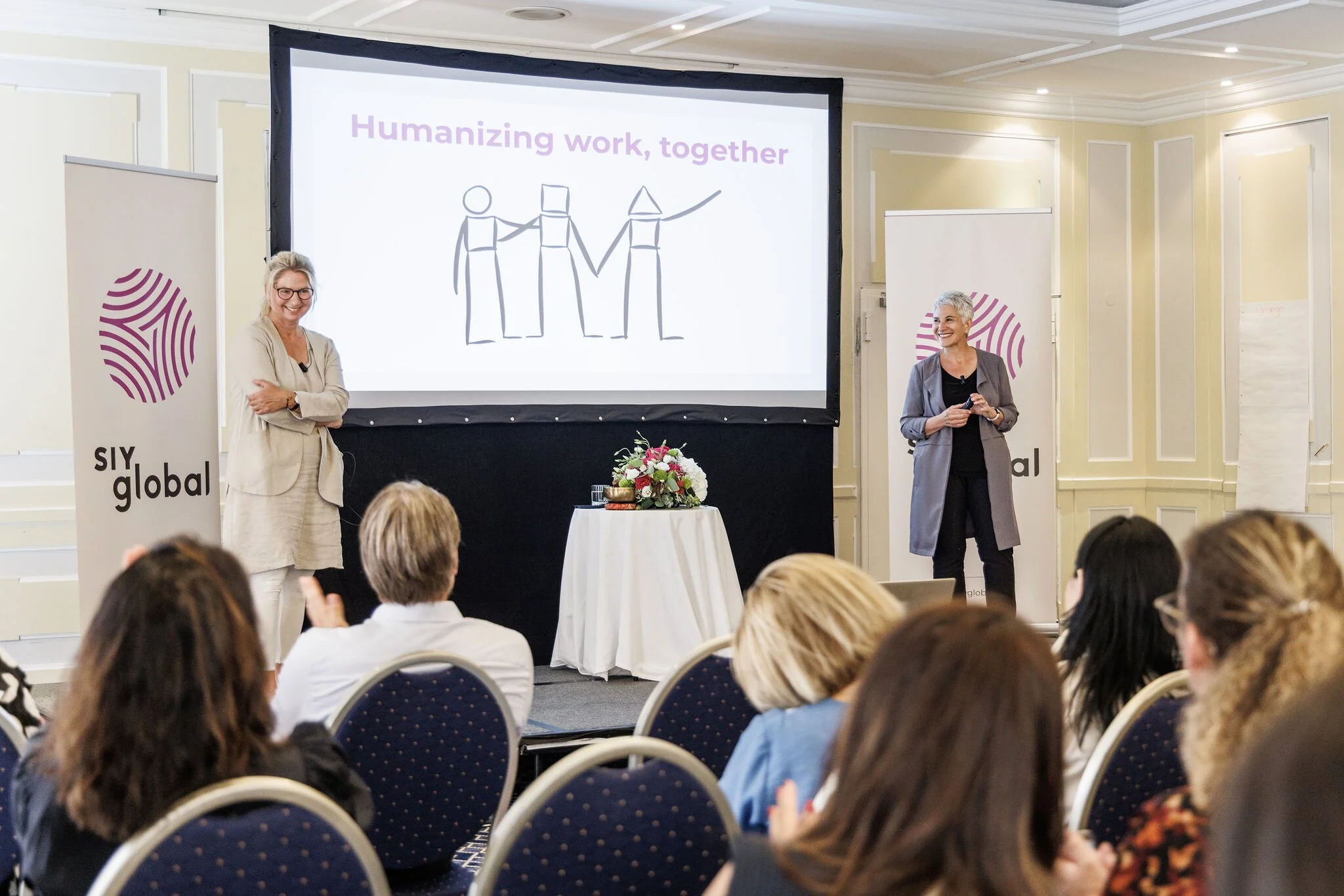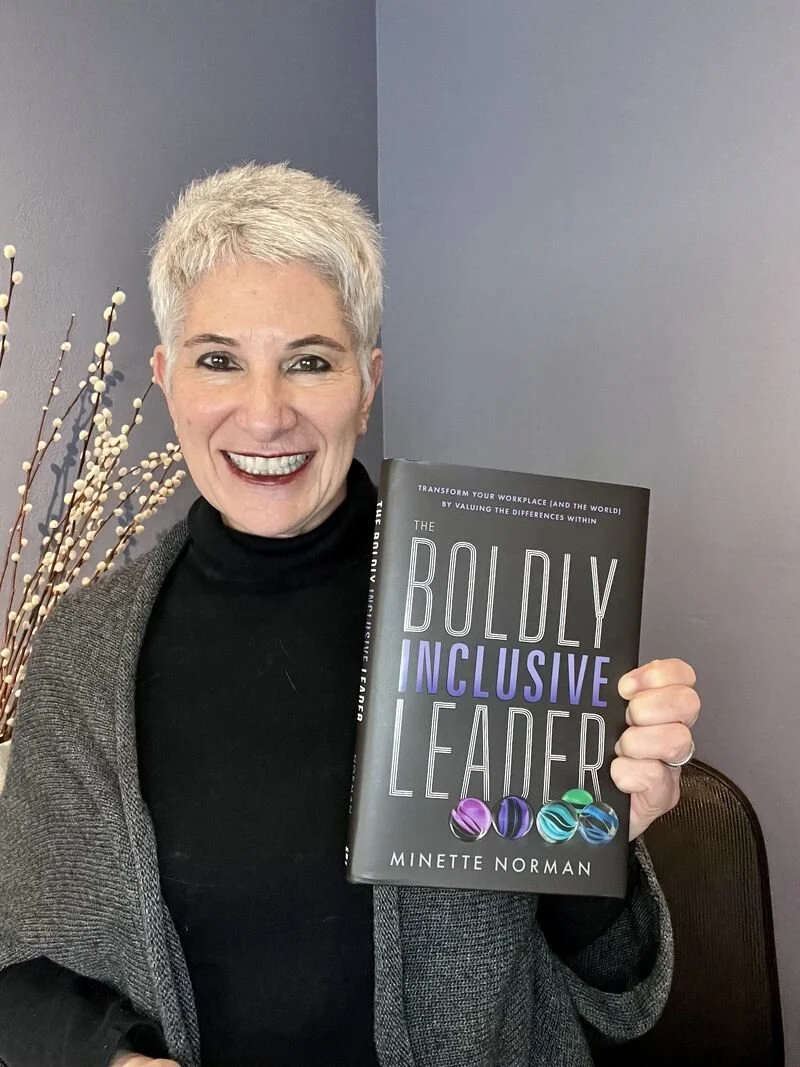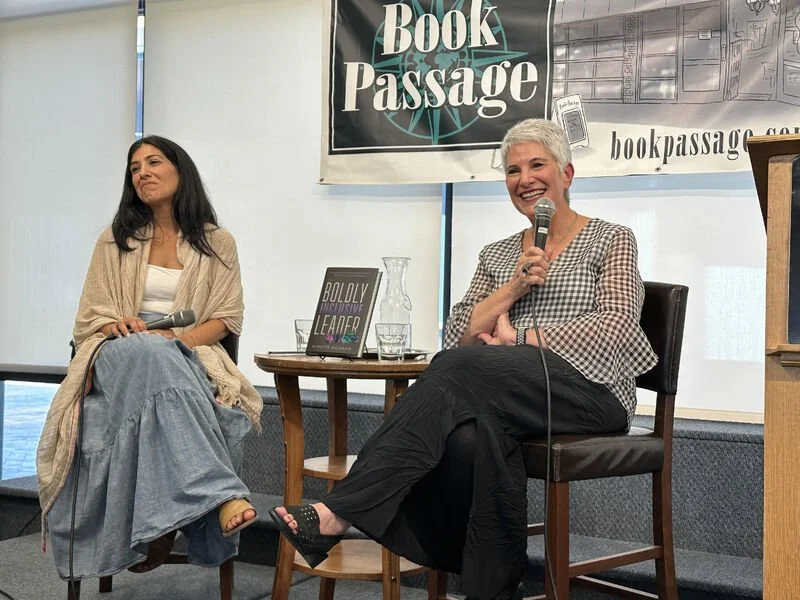The Voice of the Under-Heard
Minette Norman, author, speaker, and leadership consultant, reflects on the power of psychological safety, the pain of exclusion, and the impact of truly inclusive cultures
Undoubtedly, we will all face difficult times in our lives. From a work perspective, this could mean challenging situations, environments or people, even when we enjoy the work that we do. I was experiencing such a time a few years back. That's about the time that I met Minette Norman, who introduced me to the philosophies around psychological safety and inclusive leadership.
Minette is an author, speaker and consultant who brings a much-needed perspective around leadership to the workplace. She worked for 30 years in the software industry, ultimately as the VP of Engineering at Autodesk, before leaving to focus on important work. Today, she helps leaders create cultures where everyone's voice matters. I’m honored to bring you her heartfelt, remarkable story.
The Power of a Plan B
Originally an aspiring actor, Minette’s journey to technology was anything but linear. With a background in drama and French, she discovered her knack for computers almost by accident while working at the French Trade Commission.
This leap from theater to tech wasn’t without challenges, but it revealed the critical role of creativity in STEM fields. While Silicon Valley today emphasizes STEM credentials, Minette found that her humanities background was actually an advantage in the early days of tech. The industry was full of creatives – designers, writers, and others who brought different perspectives to the work.
“We think you’re either STEM or you’re humanities, and never the two shall meet. I think that’s a false dichotomy because deeply human skills are critical in tech and all workplaces.”
Minette’s story reminds us that unconventional paths can lead to profound contributions. Her creative foundation has enabled her to see beyond the binary and bring a much-needed human perspective to technology.
Leading from the Outside In
Even as she rose to become VP of Engineering at Autodesk, Minette often felt like an outsider in the tech world. Despite her executive position, she experienced what many others feel – the sense of not being part of the "insider's club." This experience shaped her understanding of workplace dynamics and revealed how exclusion impacts performance. Research shows our brains register social exclusion as physical pain, making it crucial for leaders to create truly inclusive environments.
“When you feel like an outsider, your brain registers pain in the same way it registers physical pain. It is every leader’s job to ensure that people aren’t experiencing this at work.”
This perspective became a catalyst for her advocacy of inclusive cultures, as she recognized the pain of exclusion as universal—and detrimental to team success. Her vulnerability about feeling silenced, even at the top, highlights the importance of creating environments where every voice can thrive.
Psychological Safety: The Bedrock of Innovation
Minette’s leadership philosophy centers on psychological safety—a principle backed by research and her own lived experiences. Whether creating inclusive meeting dynamics or recognizing the strengths that quieter members can bring to a team, she has championed a culture where everyone feels valued. Her efforts to cultivate psychological safety resulted in more innovative teams and better collaboration, proving its transformative power.
“We reward the loudest voices, but they’re not always the ones with the best ideas. Leadership means deliberately creating space for all voices.”
Beyond Diversity to True Inclusion
One of the biggest myths Minette encountered was that hiring a diverse team automatically creates inclusion. The reality is more complex. While diverse teams do outperform homogeneous ones on challenging and innovative issues, this only happens when leaders consciously create an environment where differences are celebrated and every voice is truly heard. It requires deliberate effort to overcome our natural affinity bias.
“We have to consciously create an environment where we celebrate our differences. We don’t have to conform. We don’t have to all look alike or think alike.”
Reclaiming Power: The Decision to Stand Alone
When Minette left her corporate role, it wasn’t a seamless transition. It required rebuilding confidence and reevaluating her mission. A pivotal moment came when she refused to sign away her intellectual property to another consultancy, realizing the true value of her experience and voice.
“I knew if I wanted to do this work, I had to do it on my own.”
This decision led her to focus on inclusive leadership and psychological safety—work that resonates deeply with organizations and individuals alike.
The Heart of Inclusive Leadership
For Minette, inclusion starts with self-awareness. Leaders must examine their biases, reactions, and behaviors to set a tone of belonging and mutual respect. She emphasized that fostering inclusion isn’t about overhauling everything but committing to small, consistent changes. Her actionable advice dismantles the myth that inclusivity is burdensome, reframing it as essential to great leadership.
“Inclusive leadership isn’t extra work—it’s just good leadership. It’s about listening, rewarding diverse perspectives, and valuing humanity in every interaction.”
The Virtual Leadership Challenge
In today's hybrid work environment, Minette sees new opportunities for inclusion. Virtual tools like online whiteboards and chat features can help bring out quieter voices in different ways. Yet it's crucial to be intentional about how we use these tools and to remember the importance of social connection in virtual spaces.
“These tools are terrific if we use them well. So I think let’s take advantage of them and not, let’s not try to say we have to be in a room to have a great interaction. We don’t.”
A Legacy of Light
Minette’s personal values seamlessly intersect with her professional mission. Throughout her life, Minette has maintained a strong commitment to mentorship and community service. Her team recognized this by crowdsourcing an award for her as "The Voice of the Under-heard." This dedication to lifting others up reflects her belief that those with privilege have a responsibility to give back and create opportunities for others.
“I believe that we all have to take care of one another on this planet. And when you have certain privileges, it is really incumbent upon you to give back in whatever ways you can.”
Minette's journey reminds us that our differences – the very things that might make us feel like outsiders – can become our greatest strengths. Whether you're leading a team, changing careers, or seeking to create more inclusive spaces, her story shows us that true leadership isn't about fitting in—it's about bringing your full self and creating space for others to do the same. Her insights challenge us to rethink leadership—not as a position of authority but as a practice of humanity.
What would your workplace or community look like if you embraced these principles? How might your light inspire others? Let’s commit to creating cultures where everyone’s voice is valued. Together, we can illuminate paths for those who come next.
You can learn more about Minette and connect with her through her website, and follow her on LinkedIn and Instagram.








